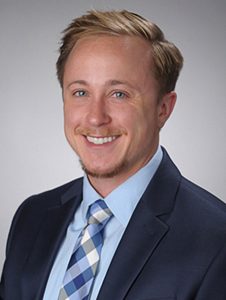
I am in the final year of the doctoral program in Marriage and Family Therapy.
What is your research area?
I research the transgender community, specifically trans-masculinity, and sexuality.
Do you have anyone who has mentored you throughout this process?
I have a great advisor, Dr. Deb Coolhart, who helps whenever it is needed. She definitely wants me to tackle everything on my own first, and then turn to her when I need help. Her research is with the transgender community as well, specifically youth, so she just understands the topic area and has guided my focus.
Why is this research important to you?
I think growing up, I realized there was a lack of understanding for trans people. There wasn’t any literature, and no one was really talking about it, and that t drove me to the topic.
Approximately how many hours did you (or do you) spend on research throughout the week?
It’s 50/50 coursework to research as you advance in a doctoral program.
What was the most challenging aspect of your research?
It’s enjoyable, but it’s hard! I think the hardest thing will be once I get to the analysis. While doing the analysis it feels like, “oh yeah, I got this.” Then, I will take it into my advisor only to learn, “yeah, actually, this is wrong.” So, then you have to do it over again. I think it helps when you’re researching a topic that you like because it makes it cool to read all the current literature.
What advice do you have for a graduate student who is looking to get involved in research?
I would align with someone that’s doing research that you are interested in and can mentor you. Also, you can’t procrastinate, you can’t wait until the last minute to turn something in or you will miss a deadline.
Do you think the research you conducted as a student will impact you in the future?
Oh, yes. Definitely. I think having done the research and being able to say, “this is what the research says,” will help people in therapy. I also hope to teach in the future, too. So, there’s always something to talk about, something to explore, and it keeps building.
